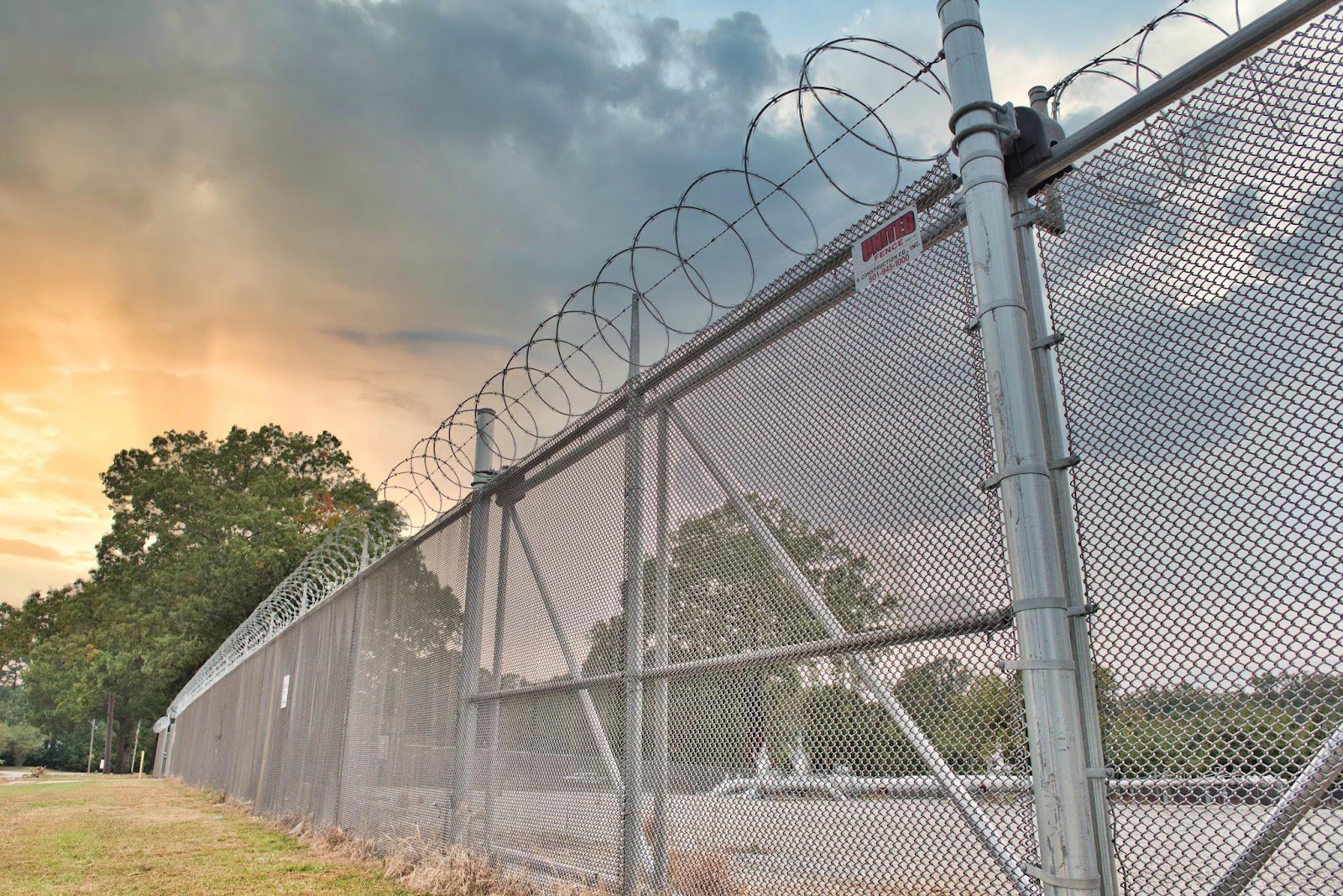Featured
If you're considering installing a fence around your residential or commercial property, comprehending the permit needs in your area is crucial. In this overview, we'll break down the different authorizations you may require to mount a fence and how to ensure your project stays compliant with regional legislations.
Why Are Allows Required for Fence Installation? Licenses are needed to ensure that the fence you develop adheres to regional building codes, zoning guidelines, and safety and security requirements. They make certain that the fencing will not block utilities, website traffic flow, or create hazards for pedestrians.
![]()
Sorts Of Permits You May Need. Structure License. A structure license is the most usual demand for mounting a fence. If your fence goes beyond a particular height (normally around 6 feet), you may need to get a building authorization.
Zoning License. Zoning regulations control land usage in your location, and they typically control where fences can be set up, as well as how tall they can be. A zoning authorization guarantees that your fence abides with these laws. As an example, your fence might need to be established back a particular distance from sidewalks or building lines. Zoning regulations can differ by area, so it's critical to examine the certain guidelines that apply to your area.
Homeowners Organization (HOA) Authorization. If your building is part of a property owners organization, you might require authorization before installing a fence. HOAs typically have strict policies relating to the kind, design, and products used for fences to preserve a consistent look throughout the area. The HOA might need you to submit thorough strategies or request authorization prior to installation. See to it you comply with these guidelines to prevent possible penalties or penalties.
Specialty Permits. In many cases, you might require specialized allows based on the place of your residential property or the nature of your fencing. If your residential or commercial property is in a flooding zone, you may require added permits to make sure that your fence does not block water drainage or water flow. If you intend to construct a fencing near an environmentally protected area, you might require a special authorization to conform with ecological regulations.
![]()
Energy Easements and Utility Company Approvals. Prior to mounting a fence, you have to examine if your property has an easement. Building a fencing within an easement might interfere with utility maintenance or damage underground lines.
Exactly How to Determine Which Permits You Need. Get In Touch With Regional Authorities. The initial step in identifying the permits called for is to contact your neighborhood building division or zoning office. They can supply certain details concerning what authorizations are needed for your location. Lots of cities have on the internet resources or portals where you can inspect the needs or perhaps get an authorization online.
Get In Touch With a Specialist Fence Contractor. A neighborhood fence specialist is frequently familiar with the license process and regional policies. They can assist you navigate the requirements and guarantee that your project is compliant. Many service providers likewise deal with the authorization application procedure in your place, conserving you effort and time.
Testimonial Your Community's HOA Guidelines. Make certain to review their standards prior to applying for any permits if you live in a neighborhood controlled by an HOA. The HOA may call for specific designs, materials, or height constraints for fencings within the neighborhood. Submit your plans to them for authorization prior to continuing.
![]()
Effects of Not Acquiring a Permit. Mounting a fencing without the needed licenses can cause severe effects. You might face penalties, be gotten to remove the fence, or be called for to remodel the installment to meet code requirements. In enhancement, selling your home can be complicated if the fence does not satisfy regional policies. Potential purchasers might hesitate to acquire a residential property with an unpermitted fence, particularly if it remains in offense of zoning laws.
Verdict. Before setting up a fence on your building, make certain you recognize the local guidelines and get any type of required licenses. Structure authorizations, zoning licenses, HOA authorizations, and specialized allows all play a crucial function in ensuring that your fencing is risk-free, lawful, and certified. Putting in the time to research and secure the appropriate licenses will conserve you from pricey blunders and possible legal concerns in the future. Whether you're intending a personal privacy fencing or a decorative boundary, complying with these actions will certainly aid make the installation procedure smooth and problem-free.
Why Are Allows Required for Fence Installation? Licenses are needed to ensure that the fence you develop adheres to regional building codes, zoning guidelines, and safety and security requirements. They make certain that the fencing will not block utilities, website traffic flow, or create hazards for pedestrians.

Sorts Of Permits You May Need. Structure License. A structure license is the most usual demand for mounting a fence. If your fence goes beyond a particular height (normally around 6 feet), you may need to get a building authorization.
Zoning License. Zoning regulations control land usage in your location, and they typically control where fences can be set up, as well as how tall they can be. A zoning authorization guarantees that your fence abides with these laws. As an example, your fence might need to be established back a particular distance from sidewalks or building lines. Zoning regulations can differ by area, so it's critical to examine the certain guidelines that apply to your area.
Homeowners Organization (HOA) Authorization. If your building is part of a property owners organization, you might require authorization before installing a fence. HOAs typically have strict policies relating to the kind, design, and products used for fences to preserve a consistent look throughout the area. The HOA might need you to submit thorough strategies or request authorization prior to installation. See to it you comply with these guidelines to prevent possible penalties or penalties.
Specialty Permits. In many cases, you might require specialized allows based on the place of your residential property or the nature of your fencing. If your residential or commercial property is in a flooding zone, you may require added permits to make sure that your fence does not block water drainage or water flow. If you intend to construct a fencing near an environmentally protected area, you might require a special authorization to conform with ecological regulations.

Energy Easements and Utility Company Approvals. Prior to mounting a fence, you have to examine if your property has an easement. Building a fencing within an easement might interfere with utility maintenance or damage underground lines.
Exactly How to Determine Which Permits You Need. Get In Touch With Regional Authorities. The initial step in identifying the permits called for is to contact your neighborhood building division or zoning office. They can supply certain details concerning what authorizations are needed for your location. Lots of cities have on the internet resources or portals where you can inspect the needs or perhaps get an authorization online.
Get In Touch With a Specialist Fence Contractor. A neighborhood fence specialist is frequently familiar with the license process and regional policies. They can assist you navigate the requirements and guarantee that your project is compliant. Many service providers likewise deal with the authorization application procedure in your place, conserving you effort and time.
Testimonial Your Community's HOA Guidelines. Make certain to review their standards prior to applying for any permits if you live in a neighborhood controlled by an HOA. The HOA may call for specific designs, materials, or height constraints for fencings within the neighborhood. Submit your plans to them for authorization prior to continuing.

Effects of Not Acquiring a Permit. Mounting a fencing without the needed licenses can cause severe effects. You might face penalties, be gotten to remove the fence, or be called for to remodel the installment to meet code requirements. In enhancement, selling your home can be complicated if the fence does not satisfy regional policies. Potential purchasers might hesitate to acquire a residential property with an unpermitted fence, particularly if it remains in offense of zoning laws.
Verdict. Before setting up a fence on your building, make certain you recognize the local guidelines and get any type of required licenses. Structure authorizations, zoning licenses, HOA authorizations, and specialized allows all play a crucial function in ensuring that your fencing is risk-free, lawful, and certified. Putting in the time to research and secure the appropriate licenses will conserve you from pricey blunders and possible legal concerns in the future. Whether you're intending a personal privacy fencing or a decorative boundary, complying with these actions will certainly aid make the installation procedure smooth and problem-free.
Latest Posts
Unparalleled Quality and Custom Solutions for each Home
Published Apr 20, 25
1 min read
Optimize Your Financial Savings Possible with WyHy MAX Cash Market
Published Apr 20, 25
1 min read
Achieve Your Financial Dreams with WyHy's Wide range Management Solutions
Published Apr 19, 25
1 min read
More
Latest Posts
Unparalleled Quality and Custom Solutions for each Home
Published Apr 20, 25
1 min read
Optimize Your Financial Savings Possible with WyHy MAX Cash Market
Published Apr 20, 25
1 min read
Achieve Your Financial Dreams with WyHy's Wide range Management Solutions
Published Apr 19, 25
1 min read